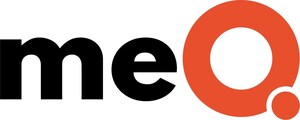BOSTON, Jan. 19, 2016 /PRNewswire/ -- Today's employers are challenged to provide competitive benefits and employee engagement strategies that not only support the wellbeing of their employees, but also improve the bottom line. As resilience building and mindfulness training programs continue to gain momentum in the workplace, meQuilibrium conducted a study to measure resilience against industry-standard psychological metrics and desired business outcomes. Today the company released the study findings in a report, "The Science Behind Resilience: A Study of Psychometric Measures and Business Outcomes," which highlights the impact of resilience on stress, absenteeism, intent to quit, job satisfaction, and physical health.
Logo - http://photos.prnewswire.com/prnh/20160115/322786LOGO
"Over the last decade, research has shown that high stress in employee populations has increased dramatically. Because high stress leads to other health and emotional issues, employers are more determined than ever to address stress in the workforce," says LuAnn Heinen of the National Business Group on Health, the nation's only non-profit organization devoted exclusively to representing large employers' perspective on national health policy issues and helping companies optimize business performance through health improvement, innovation, and health care management. "Our own survey data shows that improving resiliency/reducing stress is among the top 5 behaviors employers say they are focused on in 2016."
meQuilibrium surveyed 2,000 employed individuals, ranging from age 18 to 64. They completed the company's proprietary resilience assessment, developed by its team of experts who have spent decades studying resilience and positive psychology. The survey focuses on the seven key factors of resilience –emotional regulation, impulse control, causal analysis, self-efficacy, realistic optimism, empathy, and sense of adventure – which ultimately roll into one resilience score. To validate the impact of resilience, the participants completed industry-standard, validated tests including the Copenhagen Psychological Questionnaire (measure of burnout), PHQ-9 measure of depression, Perceived Stress Scale and the WPAI presenteeism measure. Key findings from the study include:
- Stress: Highly resilient workers have 46 percent less perceived stress than low resilience workers.
- Absenteeism: Compared to highly resilient workers, twice as many employed individuals with low resilience have reported 1 to 3 absences in the past month.
- Intent to Quit: Individuals with low resilience are twice as likely as those with high resilience to quit in the next six months.
- Job Satisfaction: Four times as many highly resilient workers are highly satisfied with their jobs, compared to those with resilience scores in the bottom quartile.
- Physical Health: Employees with low resilience are more than twice as likely to be overweight and twice as likely to report a hospital stay in the past year.
These results underscore that employers who work to improve resilience within their employee base will develop a more engaged, healthy and productive workforce. Moreover, it shows that resilience is a measureable competency comprising specific coping skills for work and life .
"The evidence is in: resilience has a measurable, proven effect on your bottom line," said Jan Bruce, co-founder and CEO of meQuilibrium. "Resilience isn't just a nice-to-have, but a foundational business imperative because having a happier, less stressed, more engaged and focused workforce delivers higher productivity, lower healthcare costs, less absenteeism—and better overall financial performance."
"When looking at benefits for our employees, it was important for us to address not only their physical health but their personal wellbeing, and we found that integrating resilience training made a positive impact," says Andrew Gold, VP Total Rewards and HR Innovations at Pitney Bowes. "With our resilience program, each employee in the pilot group received a personalized program to help them on their journey to determine the root causes of their stress and learn how to adapt. Our employees have seen an improvement in their ability to handle workplace stresses and be more productive as a result."
To review the full report, please visit meQuilibrium.com.
About meQuilibrium
meQuilibrium is a digital coaching platform based on the science of resilience that targets stress, supports productivity and enhances performance and wellbeing. The clinically validated, HIPAA-compliant platform delivers improved outcomes for employers, health plans, wellness providers, and consumers. meQuilibrium services two key markets: large enterprises, eager to stem the estimated $300 billion they lose each year in employee absenteeism and lost productivity due to stress, and payors and health plans seeking to drive innovation and enhance traditional services in an era of consumer-driven healthcare. To learn more about meQuilibrium, visit www.mequilibrium.com.
meQuilibrium PR Contact
Stephanie Olesen
InkHouse for meQuilibrium
[email protected]
SOURCE meQuilibrium
Related Links
WANT YOUR COMPANY'S NEWS FEATURED ON PRNEWSWIRE.COM?
Newsrooms &
Influencers
Digital Media
Outlets
Journalists
Opted In





Share this article